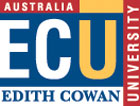Bachelor of Laws (Graduate Entry)
Bachelor of Laws (Graduate Entry)
If you have a bachelor’s degree in another field and are interested in studying law, this is your course. This fully accredited law degree can be studied on-campus or online in three years of full-time study or part-time equivalent. The course equips you with the skills for a rewarding career…
Categories
COURSE DESCRIPTION
If you have a bachelor’s degree in another field and are interested in studying law, this is your course.
This fully accredited law degree can be studied on-campus or online in three years of full-time study or part-time equivalent.
The course equips you with the skills for a rewarding career in the legal, corporate, commercial or social justice fields.
During the course you’ll have the chance to put theory into practice by competing in mooting competitions nationally and internationally, and being involved in the Law Society Peer Mentoring Program.
You’ll graduate prepared for a career in the courtroom and beyond.
Course learning outcomes
Adopt professional and ethical behaviour and/or personal citizenship that reflect the interrelationship between ethics, code of conduct, justice and community service.
Apply broad and coherent range of legal knowledge for the legal profession incorporating international/global/cultural/Aboriginal and Torres Strait Islander perspectives.
Exercise critical thinking, judgment and intellectual independence to evaluate, consolidate and synthesise legal knowledge.
Think creatively to anticipate challenges and generate solutions in legal-based situations.
Communicate legal knowledge, concepts and advice using relevant technologies clearly and persuasively.
Collaborate in team settings to produce measurable outcomes.
Reflect on feedback and critique on own performance to support personal and professional development.
Career Opportunities
With an ECU Law degree, there are career opportunities in private practice, in-house corporate practice and in-house government roles. Your excellent written and verbal communication skills, and your analytical thinking ability could also open doors in corporate planning, government policy, politics, journalism, creative writing and many other careers.
Possible future job titles
Lawyer, Barrister, Solicitor, Legal Practitioner, Judge’s Associate, In-House Counsel, Community Legal Adviser, Government Legal Officer
REQUIREMENTS
There are various ways to meet our admission requirements, such as:
Secondary school results
Successful completion of one year of tertiary study from a recognised institution
Completed Diploma program from a recognised institution
English competency requirements:
IELTS Academic: An overall band minimum score of 6.0, with no individual band less than 6.0. (Results are typically valid for 2 years and online tests are not acceptable.)
TOEFL iBT: 70 (no individual score less than 17)
TOEFL Paper-Based Test (PBT): Minimum score of 550, including Test of Written English of 5 or better. (Results are typically valid for only 2 years.)
Pearson Test of English (PTE) Academic: 52, with no scores less than 50. (Results are typically valid for only two years.)
EDUCATIONAL INSTITUTION
Edith Cowan University (ECU) is a large, multi-campus institution serving communities in Western Australia and internationally.ECU was awarded university status in 1991, but despite its relative youth, the University has a proud history of more than a century of service to education in Western Australia and is recognised for its teaching and learning, excellence in research, and partnerships with the community.We have more than 23,300 students, including around 18,500 undergraduates and 4,800 postgraduates. Approximately 3,600 international students attend the University, originating from 104 countries.We are a progressive University with courses developed through ongoing industry input, and employing lecturers who engage fully with their students. We’re a university that knows while knowledge is important, understanding comes from experience –experience that enables you to adapt what you’ve learned to whatever opportunities come your way. Because that’s when you do more than just survive in this world. You thrive in it.




